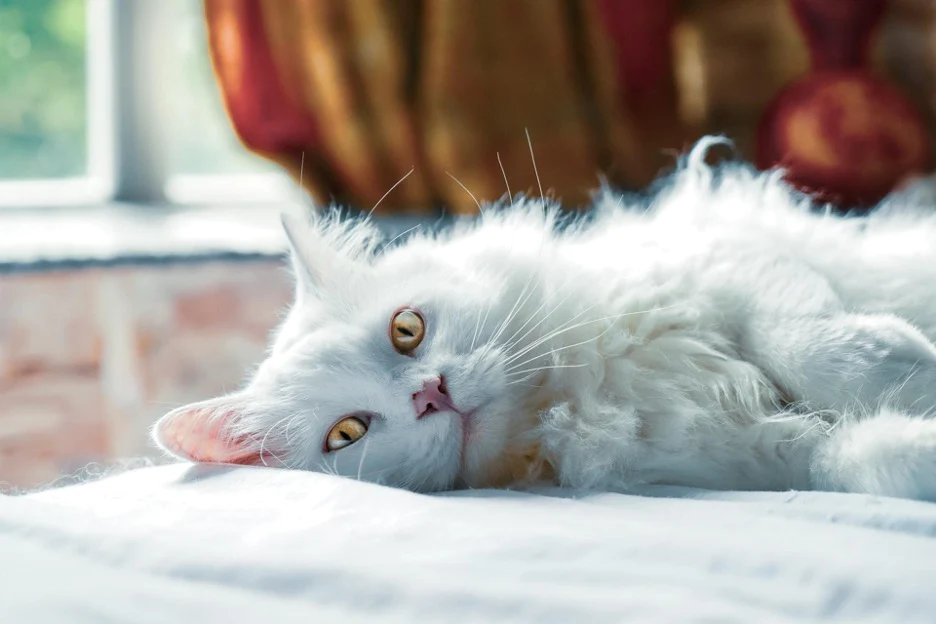Pregnant Persian Cat Care: A Complete Guide to Their Health
Congratulations on your pregnant Persian cat! However, this wonderful era includes obligations. Protecting the mother and her kittens is crucial. Persian cats are recognised for their beautiful coats and attractive dispositions, yet they may miscarry and have congenital abnormalities. This detailed guide will cover how to care for your pregnant Persian cat and provide her the finest assistance during this precious time.
1. Confirming Pregnancy of Your Persian Cat
Care for your pregnant Persian cat begins with verifying her pregnancy. Your cat may get pregnant over time, but it’s important to confirm. Feline-experienced veterinarians provide the most accurate ultrasounds. This ultrasound will confirm the pregnancy and reveal kitten numbers and health.
If your Persian cat has pregnancy symptoms with no ultrasound facility nearby, you may observe them. Some typical signs:
Pregnant cats may vomit and feel sick like humans. The occasional uneasy stomach is typical.
Your cat may become more friendly during pregnancy. However, some cats may retreat and restless. Both responses are natural.
Your cat’s hunger will rise as the kittens develop. This is normal; feed her extra to suit her nutritional requirements.
2. Proper Nutrition for Persian Cat
Proper diet is essential for mother and kitten health. Persian cats need more nutrients during pregnancy. They need:
High-Quality Protein: Give your cat enough protein. Commercial pregnancy cat food is great. It provides nutrients for a healthy pregnancy.
Calcium and Vitamins: Persian cats require calcium and vitamins to grow kittens. Look for cat food with these nutrients.
Consider feeding your pregnant cat homemade food if you can’t locate commercial cat food. Protein content of cooked beef is high. Use it!
And then, salt might cause pregnancy difficulties, so avoid it while cooking. You may also give kitten milk for calcium.
3. Keeping Home Clean
Preventing infections and keeping your pregnant Persian cat healthy requires a clean home. Consider these crucial points:
everyday Cleaning: Clean your cat’s bedding and litter box everyday or every other day. Regular cleaning decreases odours and fungal problems.
Be sure to keep your cat’s dishes clean at all times. She avoids pollutants in her food and water using this method.
4. Avoid Overhandling to Your Persian Cat
It’s normal to want to touch your pregnant Persian cat, but too much might make her uncomfortable and raise miscarriage risk. Avoid excessive handling and let your cat relax to maintain pregnant safety.
5. Bathe less
Maintaining your cat’s cleanliness is important, but restrict baths during pregnancy. Bathing a pregnant cat may stress it and increase the chance of miscarriage.
If your cat isn’t too dirty, clean her hair with a moist towel, focusing on problem areas. Don’t clean her tummy too hard to avoid hurting the kittens.
6. Separation from cats
Avoid mixing your pregnant Persian cat with other cats to protect the pregnancy. When male cats are present, this step is critical. Separation reduces the pregnant cat’s mating risk.
Conclusion
Pregnant Persian cats need careful care. You may assist your beloved cat have a safe and healthy pregnancy by verifying the pregnancy, giving appropriate diet, keeping a clean environment, and minimising handling. Remember that every cat is different, so personalise your care to her requirements. You’ll soon have a healthy, happy litter of kittens with appropriate care!

